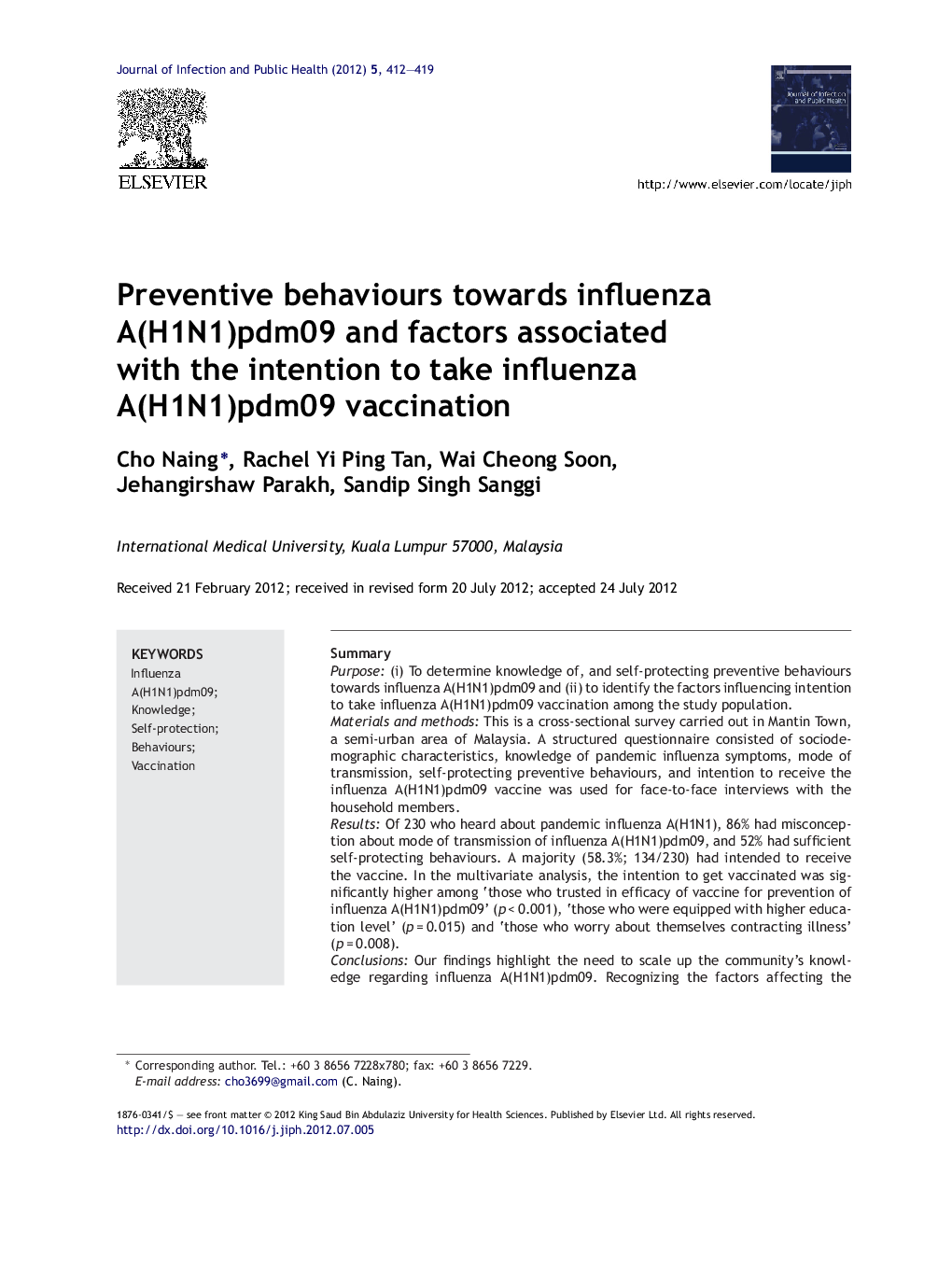| Article ID | Journal | Published Year | Pages | File Type |
|---|---|---|---|---|
| 3406378 | Journal of Infection and Public Health | 2012 | 8 Pages |
SummaryPurpose(i) To determine knowledge of, and self-protecting preventive behaviours towards influenza A(H1N1)pdm09 and (ii) to identify the factors influencing intention to take influenza A(H1N1)pdm09 vaccination among the study population.Materials and methodsThis is a cross-sectional survey carried out in Mantin Town, a semi-urban area of Malaysia. A structured questionnaire consisted of sociodemographic characteristics, knowledge of pandemic influenza symptoms, mode of transmission, self-protecting preventive behaviours, and intention to receive the influenza A(H1N1)pdm09 vaccine was used for face-to-face interviews with the household members.ResultsOf 230 who heard about pandemic influenza A(H1N1), 86% had misconception about mode of transmission of influenza A(H1N1)pdm09, and 52% had sufficient self-protecting behaviours. A majority (58.3%; 134/230) had intended to receive the vaccine. In the multivariate analysis, the intention to get vaccinated was significantly higher among ‘those who trusted in efficacy of vaccine for prevention of influenza A(H1N1)pdm09’ (p < 0.001), ‘those who were equipped with higher education level’ (p = 0.015) and ‘those who worry about themselves contracting illness’ (p = 0.008).ConclusionsOur findings highlight the need to scale up the community's knowledge regarding influenza A(H1N1)pdm09. Recognizing the factors affecting the acceptance of vaccination documented in this study will allow decision makers to devise effective and efficient vaccination strategies.
► We determined knowledge and prevention behaviours related to influenza A(H1N1). ► We assessed the willingness to accept vaccination. ► Majority would accept vaccination. ► The main reasons were “worried about contracting the virus” and “worried about family members contracting the virus”. ► We The survey determined knowledge and self-protecting prevention behaviours related to influenza A(H1N1) and assessed the willingness to accept vaccination. ► Majority of the respondents would accept vaccination and the main reasons for such acceptance were “worried about contracting the virus” and “worried about family members contracting the virus”. ► There are misconceptions regarding transmission of influenza A(H1N1), a low level of self-protecting behaviours and more than one third of respondents had the intention to decline vaccination found misconceptions regarding transmission of influenza A(H1N1) among the respondents.
